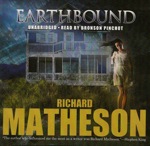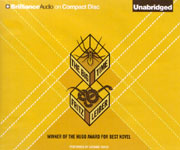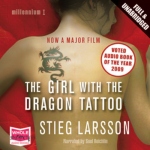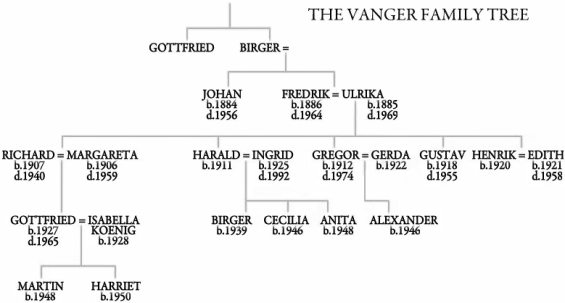
 Iambik Audiobooks has just released its first Science Fiction & Fantasy Collection! Individual books are $6.99, and you can get the whole collection of nine titles for $43.99.
Iambik Audiobooks has just released its first Science Fiction & Fantasy Collection! Individual books are $6.99, and you can get the whole collection of nine titles for $43.99.
Use the code “sff-audio-25” and get a 25% discount on your order.
Number one on my to listen list is this classic David Gerrold novel…
 The Man Who Folded Himself
The Man Who Folded Himself
By David Gerrold; Read by Charles Bice
MP3 or M4B Download – Approx. 4 Hours 28 Minutes [UNABRIDGED]
Publisher: iambik audio
Published: May 2011
ISBN: 9781926673400
The Man Who Folded Himself, written in 1973 (and reissued by BenBella in 2003) is a classic science fiction novel by award-winning author David Gerrold. This work was nominated for both Hugo and Nebula awards and is considered by some critics to be the finest time travel novel ever written.
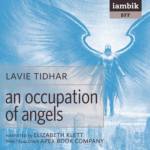 An Occupation Of Angels
An Occupation Of Angels
By Lavie Tidhar; Read by Elizabeth Klett
MP3 or M4B Download – Approx. 3 Hours 23 Minutes [UNABRIDGED]
Publisher: iambik audio
Published: May 2011
After Archangels materialise over the bloodbaths of WWII, they take up residence in most of the world’s major cities. But what would happen if, more than quarter of a century later, something somehow managed to kill these supreme beings? Killarney knows and, as an agent working for the Bureau, a British agency that’s so secret it doesn’t officially exist, she finds herself embroiled in the consequences as, one by one, the Archangels die. Assigned to trace a missing cryptographer thought to have information on the murders, she travels from England, through France, heading for the frozen wastes of the USSR. But there’s an unknown third party intent on stopping her, and there’s God, who also has an agenda. Not knowing who is friend and who is foe, and with only a brief glimpse of a swastika on angel wings as solid information, Killarney struggles to remain alive long enough to glean sufficient information to put together the pieces of the puzzle and complete what is, without them, an impossible mission.
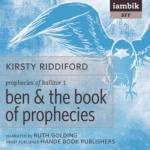 Ben And The Book Of Prophesies
Ben And The Book Of Prophesies
By Kirsty Riddiford; Read by Ruth Golding
MP3 or M4B Download – Approx. 9 Hours 25 Minutes [UNABRIDGED]
Publisher: iambik audio
Published: May 2011
ISBN: 9781926673431
Ben and the Book of Prophecies is the first book of the Prophecies of Ballitor. Ben is the youngest and most successful thief in the royal city of Quadrivium, but an unexpected encounter with Bella, the queen’s mother, changes his life forever. In return for a substantial reward Ben agrees to track down the Book of Prophecies which disappeared from the palace library many years before. It is believed that the Book contains a prophecy which will save the kingdom from an impending war with the rebels. Yet Bella also has an ulterior motive, to find her son who went missing whilst searching for the same book. Ben finds himself catapulted into an unfamiliar world of magic and intrigue where talking eagles and mythical creatures help him on his quest. During his travels he unearths dark secrets as lives are put in peril and an unforeseen reunion surfaces. But not everyone wants the book to be found
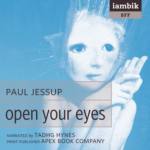 Open Your Eyes
Open Your Eyes
By Paul Jessup; Read by Tadgh Hynes
MP3 or M4B Download – Approx. 3 Hours 23 Minutes [UNABRIDGED]
Publisher: iambik audio
Published: May 2011
ISBN: 9781926673196
Her lover was a supernova who took worlds with him when he died, and as a new world grows within Ekhi, savage lives rage and love on a small ship in the outer reaches of space. A ship with an agenda of its own. Critically acclaimed author of weird fiction Paul Jessup sends puppets to speak and fight for their masters while a linguistic virus eats through the minds of a group of scavengers in Open Your Eyes, a surrealist space opera of haunting beauty and infinite darkness.
 Fall From Earth
Fall From Earth
By Matthew Johnson; Read by Emma Newman
MP3 or M4B Download – Approx. 9 Hours 3 Minutes [UNABRIDGED]
Publisher: iambik audio
Published: May 2011
ISBN: 9781926673332
Shi Jin is a rebel, the latest in a long line of those who have challenged the Borderless Empire and failed. Dropped with a crew of convicts on an uninhabited planet, Shi Jin – and mankind- encounter alien life forms for the first time. She discovers that she is part of a much bigger game…one that will force her to decide between her desire to defeat the Empire and the future of humanity.
 In The Shadow Of Swords
In The Shadow Of Swords
By Val Gunn; Read by Clive Catterall
MP3 or M4B Download – Approx. 10 Hours 15 Minutes [UNABRIDGED]
Publisher: iambik audio
Published: May 2011
ISBN: 9781926673424
When the assassin Ciris Sarn, murders Hiril Altaïr, he unwittingly leaves behind the legendary Books of Promise. They come into the hands of Hiril’s vengeful widow, Marin, and she becomes a target even as she hunts for her husband’s murderer. Meanwhile, Fajeer Dassai, a brutal kingmaker, plots to retrieve the fabled treasure to make himself wealthy beyond imagination. His only obstacle is Pavanan Munif, a capable, but drug-addicted tracker. Soon assassins, sheikhs, spies, and viziers are all embroiled in a potentially world-shattering conspiracy racing to an inevitable showdown where violence and murder is the only path to true redemption.
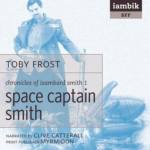 Space Captain Smith
Space Captain Smith
By Toby Frost; Read by Clive Catterall (Myrmidon)
MP3 or M4B Download – Approx. 7 Hours 6 Minutes [UNABRIDGED]
Publisher: iambik audio
Published: May 2011
ISBN: 9781926673417
Space Captain Smith is the first book of the Chronicles of Isambard Smith. It’s the 25th Century and the British Space Empire faces the gathering menace of the evil ant-soldiers of the Ghast hive, hell bent on galactic domination and the extermination of all humanoid life forms. Captain Isambard Smith is the square-jawed, courageous and somewhat asinine new commander of the clapped out freighter John Pym, destined to take on the alien threat because nobody else is available. Together with his bold crew- a skull-collecting alien lunatic, an android pilot who is actually a fugitive sex toy and a hamster called Gerald- he must collect new-age herbalist Rhianna Mitchell from the New Francisco orbiter and bring her back to the Empire in safety. Straightforward enough – except the Ghasts want her too and, in addition to a whole fleet of Ghast warships, Smith has to confront void sharks, a universe-weary android assassin and John Gilead, psychopathic naval officer from the fanatically religious Republic of Eden before facing his greatest enemy: a ruthless alien warlord with a very large behind…
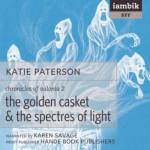 The Golden Casket And The Specters Of Light
The Golden Casket And The Specters Of Light
By Katie Paterson; Read by Karen Savage
MP3 or M4B Download – Approx. 8 Hours 44 Minutes Minutes [UNABRIDGED]
Publisher: iambik audio
Published: May 2011
ISBN: 9781926673448
The Golden Casket And The Specters Of Light is the second book of the Chronicles of Valonia. Three years after Rachel and Gareth’s lives had returned to normal, they are forced to revisit Valonia, after receiving an unsettling phone call. The Golden Casket And The Specters Of Light pursue them back into the heart of danger, this time to face an even greater threat, as they attempt to unravel a mysterious disappearance. The twins find themselves in a race against time beside a trio of evil sorcery.
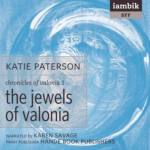 The Jewels Of Valonia
The Jewels Of Valonia
By Katie Paterson; Read by Karen Savage
MP3 or M4B Download – Approx. 7 Hours 43 Minutes [UNABRIDGED]
Publisher: iambik audio
Published: May 2011
ISBN: 9781926673394
The Jewels Of Valonia is the first book of the Chronicles of Valonia. It follows 12-year-old twins, Gareth and Rachel, as they embark on a mystical adventure after travelling to the remote village of Valonia, where everything is far from what it seems. An encounter with a stranger leads them into a world of sorcery and danger. As they pass through the realms of time, the twins realise that their destiny lies within powers that they have yet to understand and control.
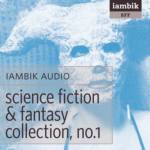 Complete Science-Fiction & Fantasy Collection 1
Complete Science-Fiction & Fantasy Collection 1
By various; Read by various
MP3 or M4B Download – Approx. 62 Hours 53 Minutes [UNABRIDGED]
Publisher: iambik audio
Published: May 2011
This collection includes all the titles in Iambik’s first release of Science-Fiction and Fantasy books.
Titles in the collection:
– Ben And The Book Of Prophecies by Kirsty Riddiford
– Fall From Earth by Matthew Johnson
– In The Shadow Of Swords by Val Gunn
– The Man Who Folded Himself by David Gerrold
– An Occupation Of Angels by Lavie Tidhar
– Open Your Eyes by Paul Jessup
– Space Captain Smith by Craig Smith
– The Jewels of Valonia by Katie Paterson
– The Golden Casket And The Spectres Of Light by Katie Paterson
Posted by Jesse Willis

 The Big Time
The Big Time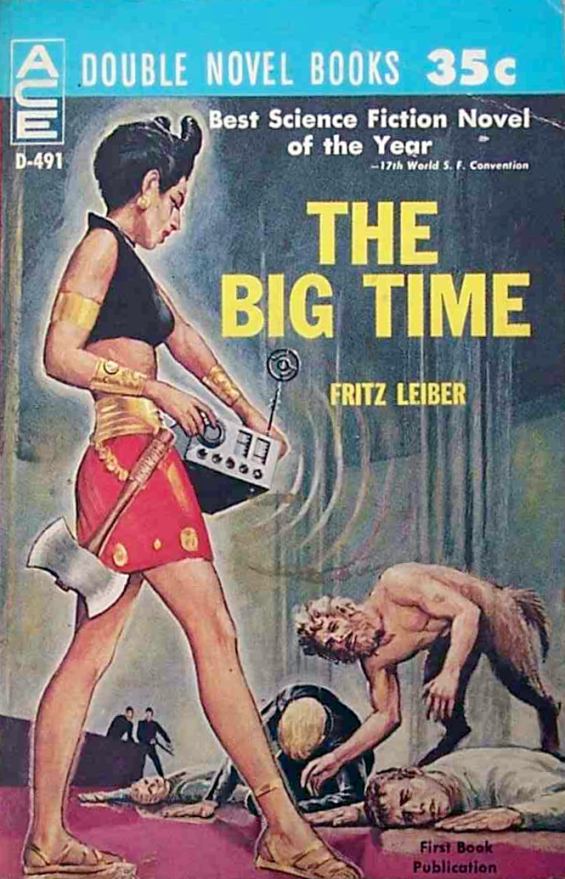
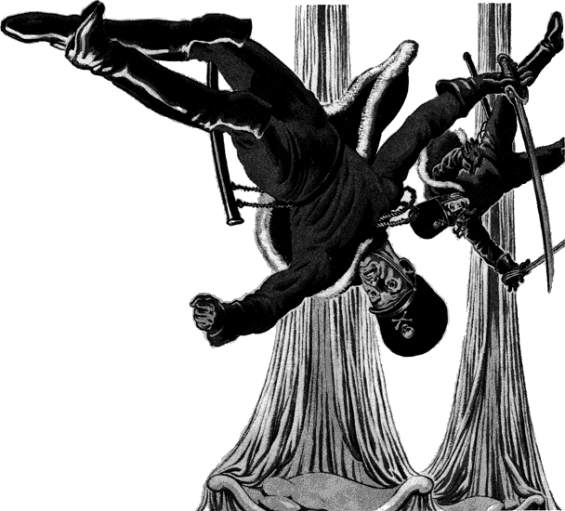
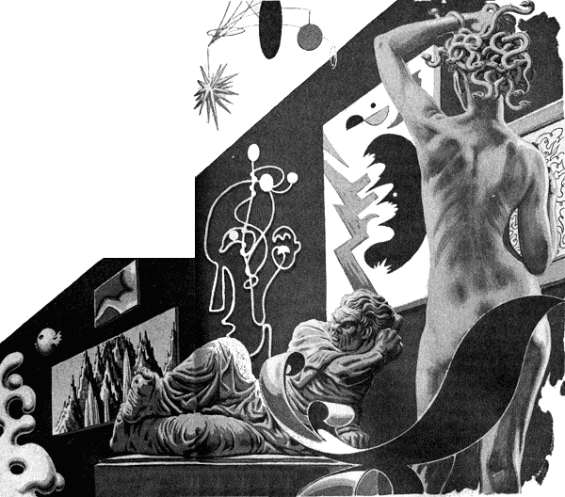
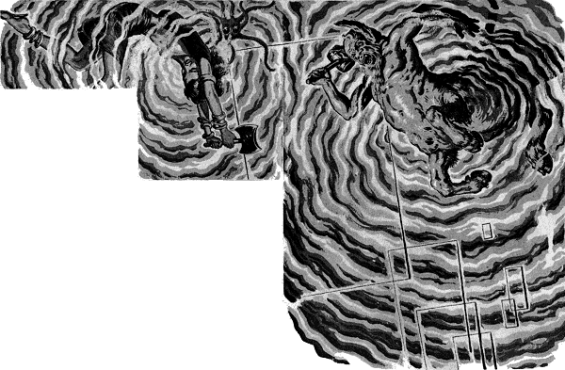
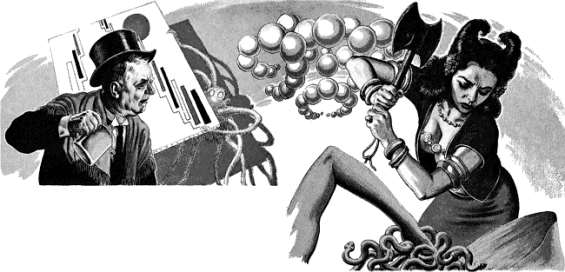
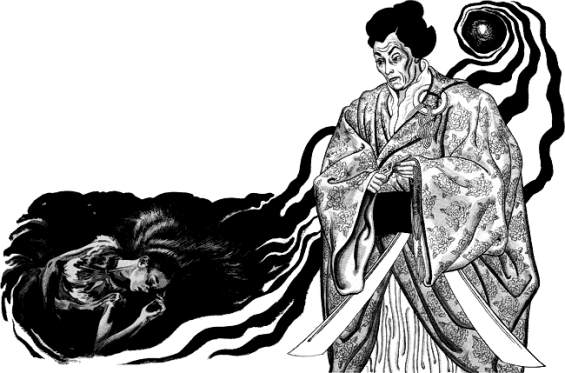

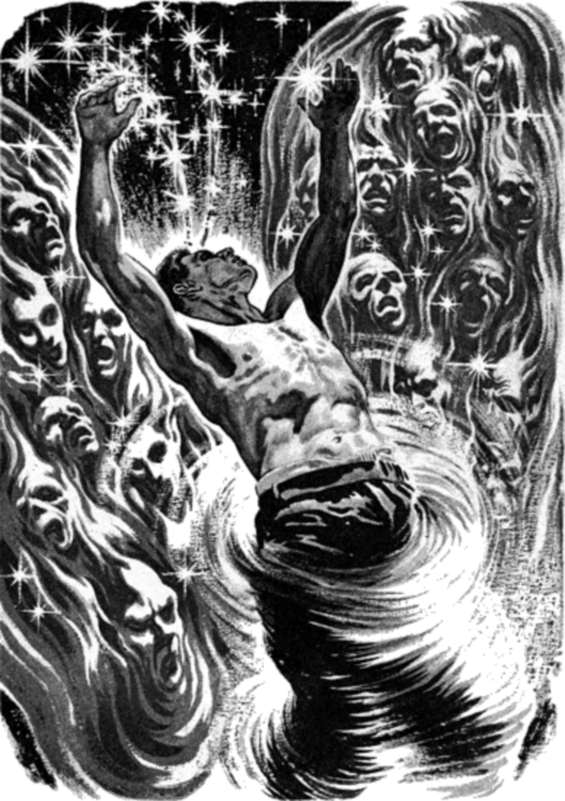
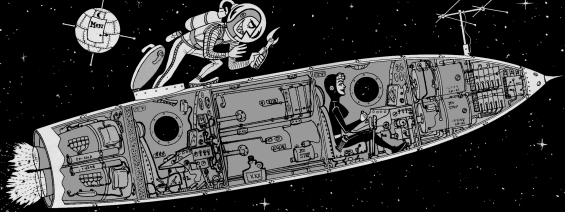











 The Golden Casket And The Specters Of Light
The Golden Casket And The Specters Of Light


